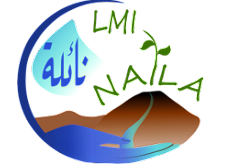The training axis aims to enrich, with research results, current lessons on the theme of the evolution of water resources and their management. Most of the actions are done beyond the framework of the training axis, either within the LMI (research axes), or through contractual projects, or in coordination with initiatives carried out by other structures.
Training activities at master’s and doctoral level are mainly related to research axes and cross-cutting actions, because the corresponding work contributes strongly to them.
Whether aimed at students or researchers, field schools prove to be very effective tools for exchange and training, in particular by emphasizing the need for holistic visions to deal with complex social-hydro-systems and by allowing the development of multi- and interdisciplinary reflections
The idea of developing digital training modules is supported by the LMI, and it mobilizes goodwill for reflection on the content. The practical realization is less advanced, due to the limited availability of researchers for actions on the sidelines of their main activity, while the time required for the production of neat products is significant.
Renouncing the strict form of the MOOC allows greater freedom in formats and content, whose differentiated development can better adapt to the availability of colleagues. But to increase the pace of production of digital teaching modules, the technical skills of the colleagues involved must be developed through training in the use of audiovisual equipment and training in the specificities of digital pedagogy. Beyond the partnerships within NAÏLA, these developments of digital resources rely on the GDRI ARID and the PSF ARID-Formation, whose resources and networks provide useful intellectual and material support.
Another major element is the establishment of seminars/webinars on thematic or methodological aspects, for example observatories or observation techniques via instrumentation. Indeed, our students have little practical experience and are faced with increasingly advanced techniques that require a certain mastery. It is just as important to devote other sessions to critical analysis and the process of constructing the scientific approach.
